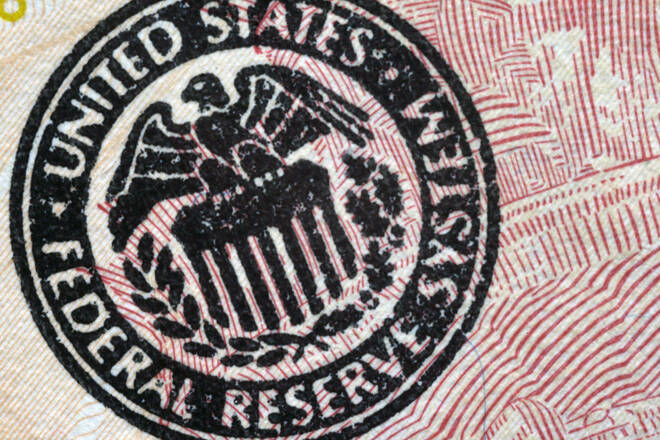Advertisement
Advertisement
Prospect Of US Interest Rates Rise Adds To Bearish Tone For Oil
By:
A plethora of bearish factors already hang over oil prices and these were added to by the prospect of a US interest rate rise on 3-4 May, which would likely make oil priced in local currencies even more expensive
Key Highlights
- A plethora of bearish factors already hang over oil prices.
- These were added to by the prospect of a US interest rate rise on 3-4 May.
- A rise would likely make oil priced in local currencies even more expensive.
As highlighted for some time by FX Empire, a plethora of bearish factors continue to weigh on the oil price, including concerns about a drop off in demand from major global buyers, anticipation of a new Iran ‘nuclear deal’, and the political and economic necessity for the US to bring prices down, among others. Further bearish pressure came from the US overnight, with Federal Reserve chairman, Jerome Powell, stating at a meeting of the IMF that: “Fifty basis points [rise in benchmark US interest rates] will be on the table for the May meeting [of the US Fed].”
Given that money goes to where it is best rewarded for the relevant risk involved, a rise in US interest rates would likely strengthen the US dollar. This would make the cost of buying oil, which is denominated in US dollars, even more expensive in the local currencies of net importers of oil and would act as a further brake on demand from key global buyers of the product.
Worse still, such hawkish statements on interest rates rises from senior members of the US Federal Reserve are usually regarded by all financial markets as a sign of a potentially long-term concerted effort to combat rising domestic inflationary pressures by increasing the cost of money. Major key importers of crude oil around the world, then, may regard this statement by Powell as a signal of a sustained program of US interest rate rises, leaving them facing spiraling local currency costs for their oil imports.
A Stronger Dollar Makes Oil Even More Expensive In Local Currency Terms
This has been seen very notably recently with Japan and has been a key reason, as FX Empire predicted, for the ongoing weakening of the JPY through the key USDJPY125.00 resistance level. Given the negative local currency pricing effect of the rise in USD-denominated petroleum and other liquid products for Japan, there is every reason to expect this JPY weakening to continue.
The same is true for the currencies of all major net importers of oil if the relevant central banks of those affected countries do not take decisive action to counteract those pricing pressures, as the Monetary Authority of Singapore did very recently, as highlighted by FX Empire. The Bank of Japan, however, has shown no such determination to counteract JPY weakness, with its Governor, Haruhiko Kuroda, having repeatedly stated that “a weak yen is generally positive for Japan’s economy.”
The next meeting of the US Federal Reserve, at which an interest rates rise may be implemented, will run from the 3rd to the 4th of May.
About the Author
Simon Watkinsauthor
Simon Watkins is a former senior FX trader and salesman, financial journalist, and best-selling author. He was Head of Forex Institutional Sales and Trading for Credit Lyonnais, and later Director of Forex at Bank of Montreal. He was then Head of Weekly Publications and Chief Writer for Business Monitor International, Head of Fuel Oil Products for Platts, and Global Managing Editor of Research for Renaissance Capital in Moscow.
Advertisement
